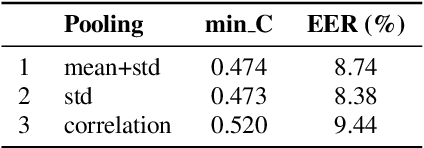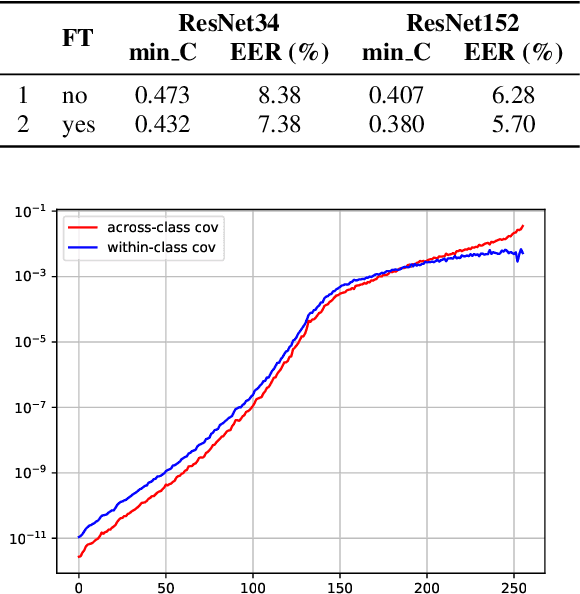Get our free extension to see links to code for papers anywhere online!Free add-on: code for papers everywhere!Free add-on: See code for papers anywhere!
Ondrej Glembek
Analyzing speaker verification embedding extractors and back-ends under language and channel mismatch
Mar 19, 2022Authors:Anna Silnova, Themos Stafylakis, Ladislav Mosner, Oldrich Plchot, Johan Rohdin, Pavel Matejka, Lukas Burget, Ondrej Glembek, Niko Brummer
Figures and Tables:







Abstract:In this paper, we analyze the behavior and performance of speaker embeddings and the back-end scoring model under domain and language mismatch. We present our findings regarding ResNet-based speaker embedding architectures and show that reduced temporal stride yields improved performance. We then consider a PLDA back-end and show how a combination of small speaker subspace, language-dependent PLDA mixture, and nuisance-attribute projection can have a drastic impact on the performance of the system. Besides, we present an efficient way of scoring and fusing class posterior logit vectors recently shown to perform well for speaker verification task. The experiments are performed using the NIST SRE 2021 setup.
* Submitted to Odyssey 2022, under review
Via
 Add to Chrome
Add to Chrome Add to Firefox
Add to Firefox Add to Edge
Add to Edge